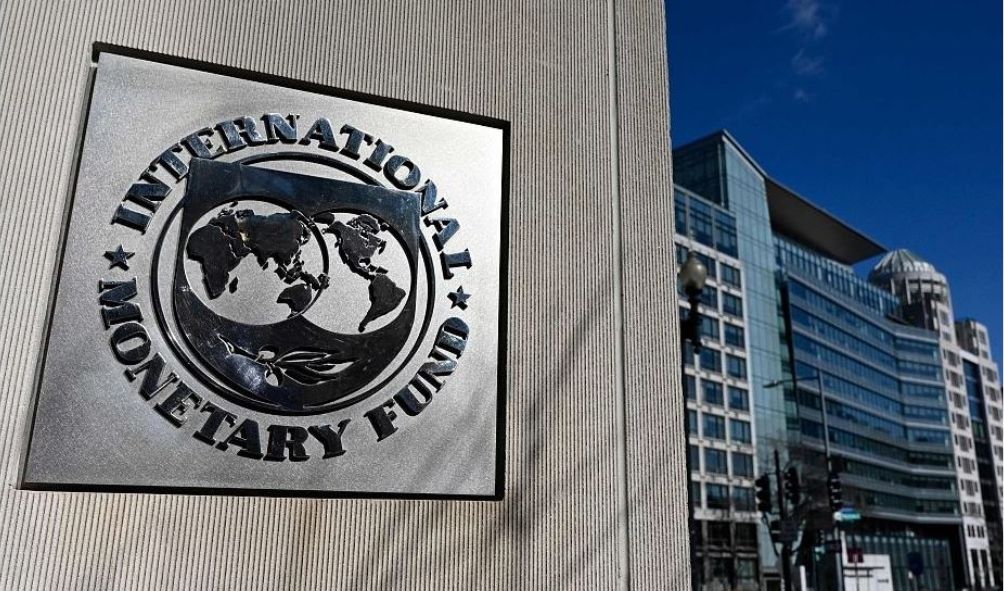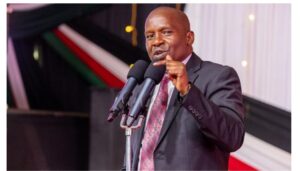Kenya eyes higher excise duty on fuel in a new deal with IMF

Kenya set to review excise duty on fuel under the International Monetary Fund (IMF) financing deal according to disclose by National Treasury
Kenya set to review excise duty on fuel under the International Monetary Fund (IMF) financing deal according to disclose by National Treasury.
According to details released by the Treasury, the excise duty on fuel would be amended by April of next year in accordance with a pledge Kenya made as part of an International Monetary Fund (IMF) financing agreement.
The excise charge on petroleum products would be evaluated to “address the negative externalities, or negative effects, of consuming these fuels,” according to the proposed Medium-Term Revenue Strategy (MTRS) for the period between June 2024 and June 2027.
The Treasury agreed to adopt carbon pricing, which may perhaps include a new carbon tax or an increase in the excise charge on fuels as well as the creation of a market for carbon credits, as part of the reform measures covered under the finance agreement between Kenya and the Washington-based organization, IMF.
The carbon tax and increased excise duty also referred to as the “sin tax,” are intended to discourage the use of fossil fuels, which scientists claim produce dangerous climate gases.
Higher excise duty on petroleum products—diesel, super petrol, and kerosene—is likely to add to the pain of motorists who are still reeling from the doubling of the value-added tax (VAT) to 16 percent.
Additionally, in the period between 2024 and 2027, the government will roll out a carbon tax, in which it will set a price that emitters must pay for each tonne of greenhouse gas emissions.
This, Treasury said, is expected to be tabled in Parliament by April next year, possibly in the next Finance Bill.
“The authorities’ recent efforts to phase out subsidies and increase taxes on fossil fuels is helping Kenya achieve its mitigation goals,” said the IMF in its fifth review under the Extended Fund Facility and Extended Credit Facility Arrangements.
“Going forward, possible options include the introduction of a carbon tax or increasing the excise tax on fossil fuels to better capture the externalities associated with fossil fuel consumption in line with the recommendations from the IMF climate policy diagnostic mission.”
A 1,000 litres of regular petrol, for example, attracts an excise duty of Sh21,522.6. The same quantity of diesel attracts an excise duty of Sh11,370.99 and Sh11,370.98 for Kerosene.
Carbon taxes are implemented mostly by OECD countries, with the non-OECD nations featured on the list being Argentina, South Africa, and Ukraine.
OECD, a club of mostly rich countries, noted that while Kenya does not levy an explicit carbon tax, its fuel excise taxes, which it describes as an implicit form of carbon pricing, covered 18.9 percent of carbon dioxide emissions in 2021.
Like many other recommendations it has proposed, the IMF expects the carbon pricing, which should first go through Parliament, to face a backlash.
Not over yet as government says fuel prices to increase by Ksh 10 every month until Feb, 2024
Drama in Parliament as Ruto allies claim Raila owes Mumias Sugar Ksh300 million
Kenyans consuming food containing residues of pesticides banned in Europe
“They would help Kenya meet its mitigation goals while raising additional fiscal revenues, which could in turn be used to compensate vulnerable groups and offset the costs of higher energy prices,” the IMF said.
“A successful rollout of this reform will need to be accompanied by a well-planned communication strategy to clearly explain how revenue from higher carbon pricing reforms will be spent including steps of the reform.”
Kenya has already secured a fresh 20-month $551.4 million (Sh80.4 billion) through the IMF’s Resilience and Sustainability Facility (RSF).
Among the reform measures committed by the government is the Cabinet’s adoption of a national framework for climate services to enable dissemination of a digital early warning system, especially targeting the most vulnerable counties in the arid and semi-arid lands.
The review date for this reform measure is October 7, 2023.
“Our team will come in to do the first review and discuss with the authorities the reforms progress and if satisfactory, the authorities can access the first batch of financing,” IMF’s Deputy Managing Director, Bo Li, told the Business Daily on the sidelines of the recent Africa Climate Summit held in Nairobi.
Consumption of coal, another fossil fuel commonly used locally by cement and steel manufacturers, might also be subjected to a higher excise duty should the strategy, in its draft form, be implemented.
Also read,
Matatu Owners Association increase fares by 50% after fuel price hike
Foreigners arrested for using tourist visas to conduct military training in Nairobi
An international organization, AfreximBank chooses Kenya for a second office in Africa
Fuel prices rise to a historic high after the latest EPRA review
University student mysteriously dies just FOUR days after admission
Follow us





